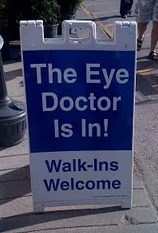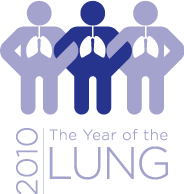iCalipers
1 Comment »Who needs calipers when you have an iPhone?
-WesMusings of a cardiologist and cardiac electrophysiologist.
*This blog post was originally published at Dr. Wes*


Who needs calipers when you have an iPhone?
-WesMusings of a cardiologist and cardiac electrophysiologist.
*This blog post was originally published at Dr. Wes*
 I snapped this picture of “The Eye Doctor Is In!” sign at my local Sam’s Club. Who is this “eye doctor?” Are they a Dr. Nurse? Are they an optometrist? Are they a medical doctor? What is the difference between an optometrist and an ophthalmologist? The sign just says “eye doctor.” Who is it? Who knows. What are their credentials? Who knows.
I snapped this picture of “The Eye Doctor Is In!” sign at my local Sam’s Club. Who is this “eye doctor?” Are they a Dr. Nurse? Are they an optometrist? Are they a medical doctor? What is the difference between an optometrist and an ophthalmologist? The sign just says “eye doctor.” Who is it? Who knows. What are their credentials? Who knows.
To practice optometry, an optometrist must graduate from an accredited four-year post graduate institution after completing at least three years of undergraduate preoptometry course requirements and then get licensed in their state of practice.
To practice ophthalmology, an ophthalmologist must graduate from an accredited four-year medical school after completing the 90+ undergraduate premedical couurse requirements, then complete a residency in ophthalmology which consists of an internship year in internal medicine or general surgery and three years or more of additional training in ophthalmology. Then they must get licensed by state authorities.
The lay public — the really lay public — has no idea what the state and federal licensing standards are for the different professional clinical training tracks. Read more »
*This blog post was originally published at The Happy Hospitalist*
 Want to know the secret to successful care of ICU patients? Think back to the advice your grandmother always gave, joked American Thoracic Society conference speaker Renee Stapleton, M.D., recently:
Want to know the secret to successful care of ICU patients? Think back to the advice your grandmother always gave, joked American Thoracic Society conference speaker Renee Stapleton, M.D., recently:
– Wash your hands.
– You can’t sleep your life away.
– Get some exercise.
– Sit up straight.
– Take your medicine.
– If you can’t remember it, write it down.
*This blog post was originally published at ACP Hospitalist*
My wife and family are alternately happy and unhappy about the prospect of me headed out of town to attend two medical conventions in a row. When they need me they REALLY need me, and when they have plenty else to do, I could be on the moon and they wouldn’t miss me.
Oh well, I am off anyway to two parts of the country in rapid succession with the goal of helping patients worldwide. The first stop is the meeting of the American Urological Association and the second is the meeting of the American Society of Clinical Oncology. I’ll be in San Francisco and then Chicago to gather medical news for patients.
I am a big believer that there should not be a delay in bringing significant medical news to people living with or affected by a medical condition. For me, as a leukemia survivor, I don’t want to wait to hear about a new or better treatment. I want it now and in-depth. I don’t want to wait for my next doctor visit. And I want to hear it from the source. That’s what being a powerful patient is all about. Read more »
*This blog post was originally published at Andrew's Blog*
More than 10 million Americans undergo elective cosmetic procedures each year. Dr. Jon LaPook reports on what every patient should know about anesthesia with Dr. Panchali Dhar, author of “Before the Scalpel.”
Plastic Surgery: Risks Of Going Under The Knife
Last year — despite the recession — there were about 10 million cosmetic procedures in the United States. According to the American Society for Aesthetic Plastic Surgery, over 90 percent were in women and about 1.5 million were surgical.
The top five surgical procedures were breast augmentation (311,957), liposuction (283,735), eyelid surgery (149,943), rhinoplasty (138,258), and abdominoplasty (127.923). As you awaken on the morning of your elective surgery, there’s no way you haven’t yet met the surgeon who will be performing the procedure. But odds are you still haven’t met the person who will be most responsible for keeping you alive: the anesthesiologist. Read more »
It’s no secret that doctors are disappointed with the way that the U.S. healthcare system is evolving. Most feel helpless about improving their work conditions or solving technical problems in patient care. Fortunately one young medical student was undeterred by the mountain of disappointment carried by his senior clinician mentors…
I am proud to be a part of the American Resident Project an initiative that promotes the writing of medical students residents and new physicians as they explore ideas for transforming American health care delivery. I recently had the opportunity to interview three of the writing fellows about how to…
Book Review: Is Empathy Learned By Faking It Till It’s Real?

I m often asked to do book reviews on my blog and I rarely agree to them. This is because it takes me a long time to read a book and then if I don t enjoy it I figure the author would rather me remain silent than publish my…
The Spirit Of The Place: Samuel Shem’s New Book May Depress You

When I was in medical school I read Samuel Shem s House Of God as a right of passage. At the time I found it to be a cynical yet eerily accurate portrayal of the underbelly of academic medicine. I gained comfort from its gallows humor and it made me…
Eat To Save Your Life: Another Half-True Diet Book

I am hesitant to review diet books because they are so often a tangled mess of fact and fiction. Teasing out their truth from falsehood is about as exhausting as delousing a long-haired elementary school student. However after being approached by the authors’ PR agency with the promise of a…